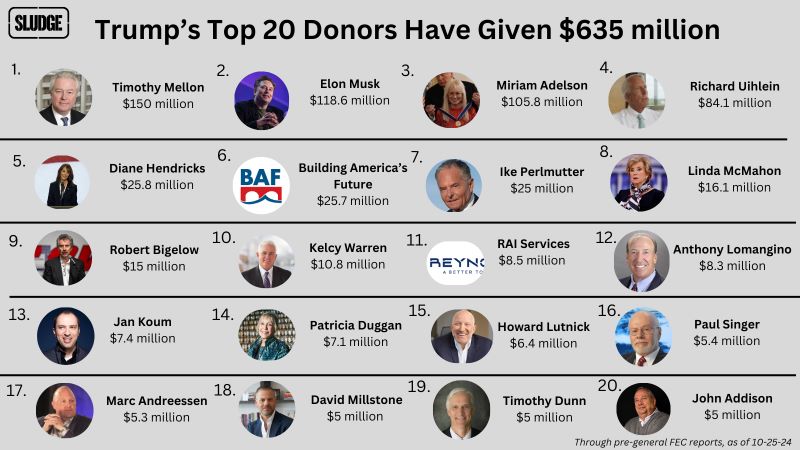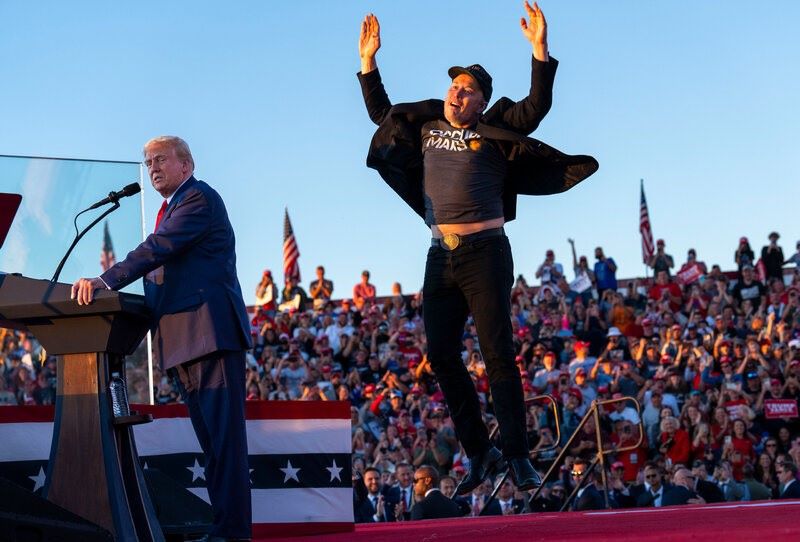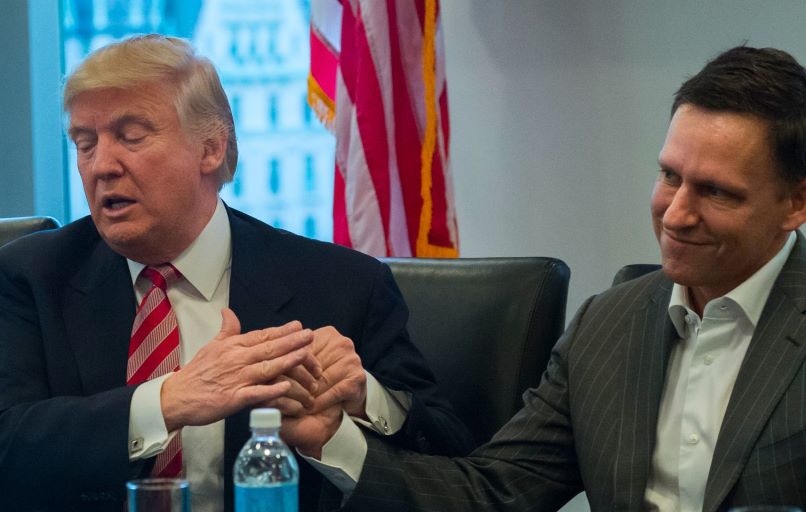America’s elections are controlled by wealthy donors
The November 2024 election of Donald Trump as the 47th president of the United States has been probably one of the fiercest electoral battles in modern history. Beyond widespread voter illiteracy and manipulation, it has exposed a deeply entrenched oligarchic misuse of a basic democratic instrument: election.
U.S. elections - either presidential, parliamentary, state or local – have long been dominated by money: the candidate with the largest financial backing almost always wins. Unlike laws in most of Europe, American legislation permits virtually unlimited donations from private sponsors to political campaigns. This leads to a system where elected officials owe their allegiance more to wealthy contributors than to the voters they are meant to serve.
More to read:
British report claims what Elon Musk did in U.K. was a test ahead of U.S. elections
Unsurprisingly, Donald Trump has rewarded his campaign donors with seats in his administration and high-level government positions, stacking his cabinet with billionaires - individuals who are often far from the struggles of the working class.
This phenomenon reflects the larger issue of how political contributions drive access, influence, and policymaking in the United States. Key problems include the dominance of wealthy donors, the role of super PACs, and conflicts of interest in government appointments.
Weak spots
One glaring problem is the concentration of power among wealthy donors. Individuals with immense financial resources, such as Elon Musk, wield disproportionate influence over elections and policies. This undermines the principle of equal democratic participation and tilts government priorities toward the interests of the wealthy elite.
More to read:
Trump’s hypocrisy: Attacking Beijing’s trade practices, printing “God Bless the USA” Bible in China
Merit-based appointments are also eroded. Key government roles, including cabinet positions and ambassadorships, are often awarded based on financial loyalty rather than expertise or qualifications. This practice fosters inefficiency, incompetence, and a decline in public trust in government institutions.
Conflicts of interest are another significant risk. Placing billionaires and donors in policymaking roles - particularly in departments regulating industries in which they have substantial stakes - creates the potential for biased governance. For example, appointing someone like Jeff Sprecher, with deep ties to financial markets, to the Securities and Exchange Commission raises serious questions about impartiality.

Donald Trump's top 20 donors as of 25 October 2024. Credit: Sludge
Additionally, the influence of super PACs further exacerbates the problem. With their ability to accept unlimited donations, super PACs effectively bypass contribution limits and enable covert coordination between candidates and wealthy backers. This undermines the principle of fair competition.
More to read:
[video] Artificial intelligence proved that Putin didn’t win the 2018 elections
The close relationship between political donations and high-level appointments also fosters public cynicism and diminishes trust in the electoral process and in government particularly.
It creates a perception that government positions are for sale, eroding the legitimacy of democratic institutions. In normal language, it is called corruption.
The stark contrast between Trump’s $277 million in contributions from a single individual (Mr. Musk & Co) and the relatively small contributions from Biden/Harris's campaign highlights an imbalance that disadvantages candidates without billionaire support.
A case for publicly-funded campaigns
The current system, where wealthy donors wield outsized influence over elections and governance, weakens democratic principles and public trust. Transitioning to a public funding model would address these issues by promoting equality, transparency, and meritocracy. It creates a fairer and more accountable governments that better serves the interests of the entire population rather than a privileged elite.
More to read:
U.S. Congress introduces bills to break up UnitedHealth Group and other insurance monopolies
Here are some advantages of a system in which parties and candidates compete with funding given to them from public coffers.
For one, it insures equality in political participation. A system funded by public budgets ensures that all candidates have equal financial opportunities, reducing the outsized influence of wealthy donors and leveling the playing field for less affluent candidates.
It can also restore the mechanism of meritocracy. Public funding decouples campaign contributions from government appointments, allowing for a merit-based selection of officials. This improves government efficiency and public trust.

Billionaire Elon Musk dancing on stage at a Trump rally. Credit: New York Times
It reduces corruption and conflicts of interest. With public funding, there is less pressure to reward large donors with influential roles, reducing the risk of conflicts of interest and ensuring policies are shaped in the public interest.
It also provides for more transparency as public funding mechanisms are transparent and subject to oversight, eliminating the opaque channels through which super PACs and private donors influence elections. A publicly funded system demonstrates that government works for the people, not just the wealthy few, thereby rebuilding confidence in democratic institutions.
More to read:
[video] Georgia’s president says parliamentary elections were rigged, calls for nationwide protests
One important aspect is the limitation of campaign spending - public financing often comes with spending caps, reducing the escalating costs of elections and the dependency on large donations.
Not least important is the fact that such a system encourages a diversity of candidates, making it easier for individuals from various socioeconomic backgrounds to run for office, fostering broader representation and inclusivity in politics.
But wait, are there any countries where election campaigns are funded from the public budget?
Europe, a mass adopter of public financing in election campaigns
In many countries, political parties are funded by the state during elections to ensure fair competition, reduce reliance on private donors, and minimize corruption. Such a mechanism best works in Europe.
In Germany, for example, political parties receive significant public money based on their electoral performance and the number of votes they receive. This funding must be matched by the party’s ability to raise private contributions.
In France, political parties are publicly funded based on their results in legislative elections. There are also strict limits on campaign spending, and private donations are capped.
More to read:
Russian police put electoral analyst on wanted list over 2024 election fraud exposure
Sweden subsidizes political parties for their activities, both for election campaigns and general operations, with money allocated based on their share of the vote.

Billionaire entrepreneur Peter Thiel (right) has been a beneficiary of Trump's tax cuts during his first term. Credit: New York Times
Public funding has historically been a key source for political parties in Italy, though reforms in recent years have reduced direct state contributions in favor of tax benefits for private donations.
The Spanish state funds political parties according to the proportion of votes they receive in national and regional elections.
The campaign public financing is also working fine in North America. In Canada, a neighbor of the U.S., federal-level political parties receive reimbursements for election expenses if they meet certain thresholds of electoral support. On the other side, there are limits to contributions from individuals and full prohibition on corporate or union donations.
The U.S.’ southern neighbor, Mexico, gives public money both for operational expenses and election campaigns. This funding is proportional to their share of the vote.
More to read:
Grok busts Elon Musk as a medium for spreading misinformation to billions of people
Other examples of countries enforcing similar systems are Brazil and Argentina in South America, India and Israel in Asia, and South Africa.
The unchecked influence of wealth in U.S. elections undermines democratic values, concentrates power in the hands of a few, and weakens public trust in government institutions. A transition to a publicly funded election system is not merely an idealistic notion but a practical solution proven to work in numerous democracies worldwide. By prioritizing equality, transparency, and accountability, public financing can restore faith in the democratic process and ensure that governance serves the broader public interest - not just the wealthy elite.
The United States, once a global champion of democracy, has much to gain by reforming its electoral system. Embracing public campaign financing is a necessary reform for a more inclusive and equitable democracy.
***
NewsCafe is an independent outlet that cares about big issues. Our sources of income amount to ads and donations from readers. You can support us via PayPal: office[at]rudeana.com or paypal.me/newscafeeu, or https://buymeacoffee.com/newscafe. Any amount is welcome.







